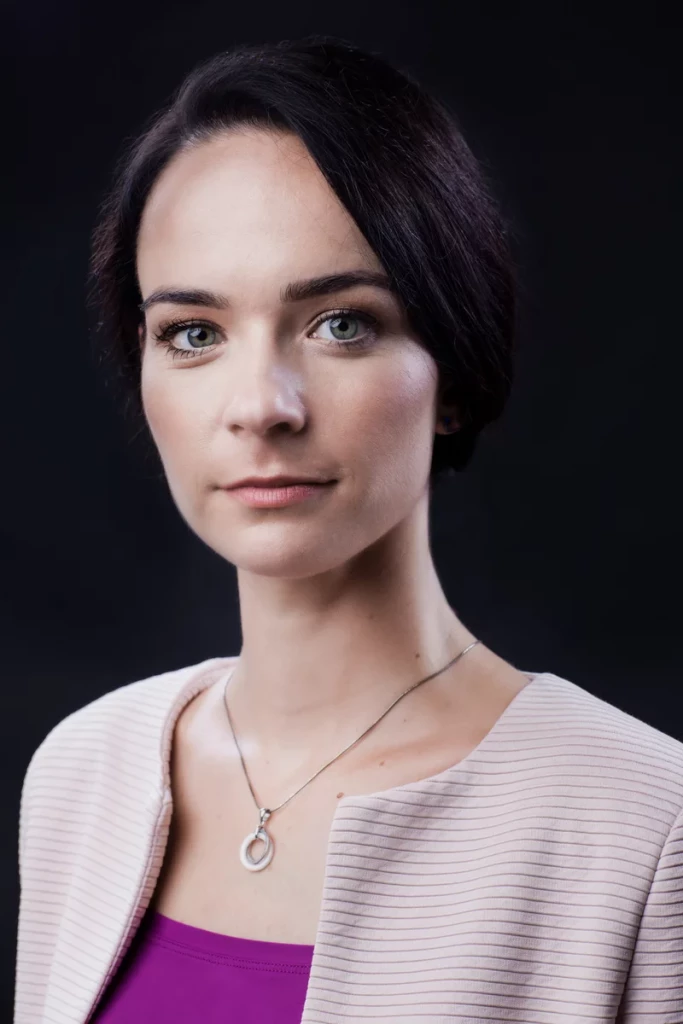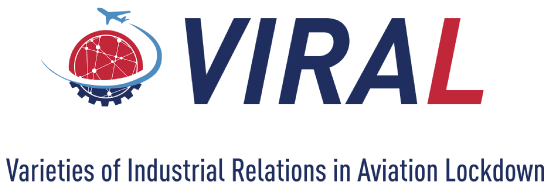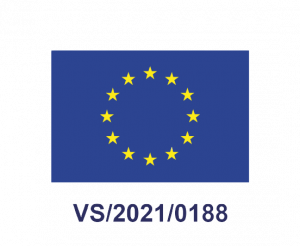Interview with Prof. Izabela Florczak, University of Łódź, Poland

It is my pleasure to be interviewing for our final newsletter for the viral project, Izabela Florczak, who’s an assistant professor of labour law at the University of Lodz in Poland. Would you tell us a little bit about yourslef, your career, what you’re doing now and what are some of your main interests as a labour law, professor and academic?
When it comes to my academic career, the start is a little bit funny and I always tell this kind of an anecdote because when I was preparing my master thesis, my supervisor asked me whether I was considering pursuing a PhD and I said, “no, I’m not interested,” and he was a little bit shocked because that’s a question a lot of people would like to hear, but I was very focused that I want to be a practitioner. But then I started to think that okay maybe that’s not a question everyone receives. So maybe this is something to consider. Then I realized while writing my master thesis that this was for me, in fact, a lot of fun. I really enjoyed it. And I thought it’s probably what academics are doing on a day-to-day basis. So I decided to talk a little bit more with my professor about his question. Now, after years, we have become close friends and we always come back to this moment when he asked me, and I said no.
As a professor, I have been very focused on labour migration, and I’m also the vice-director of the Centre for Migration studies at our university team. After some time of being focused, mostly on the academia, I got a proposal to also work a little bit more private practice. And recently I became vice dean for international cooperation and projects at my faculty too. So a lot is going on in my professional career.
I also do focus quite a lot on trying to organize the society of researchers who do deal with labour law and social security called Cooperante.
I do a lot of work with labour migration. And as you can only imagine with first Covid and now the war on Ukraine, those are the phenomena which really are the challenges for labour migration. So how to deal with that new reality? And from this point of view, I’m trying to find some kind of model of how to deal with those phenomena which are happening, and will be happening, when it comes to migration from the perspective of the hosting country. So this is a part of my research areas right now.
You must have a real sense of urgency about migration, this is not theory at all. This is very real, especially because you’re right on the border there.
Yes, that is true. But what I try to figure out is how to use these experiences that we are having right now and ask what lessons we can learn and how to prepare and model solutions for when something else happens in the future that we could not have predicted. For example, we have to be prepared for the migration caused by the climate change, this is something really that we have to expect in the future still. How can we prepare our labour market? What kind of solutions? We can’t wait for the proper moment to be woken up. So this is very complex because we have to figure out how to prepare the whole economy.
Speaking of complexity, tell us a little bit about the VIRAL project. What are one or two things you have learned that have surprised you particularly that have emerged from the research?
When we were starting the viral project, I expected that the aviation value chain really protects the higher standards of employment. Probably because, if you think about the pilot, If you think about the cabin crew, you expect that because you probably assume that they earn a lot of money. So the standards of employment are probably very high. You think about the value chain as something that functions very well. And that was my expectation, that probably the employment standards in this particular sector are very high. And then I realized that it’s the same everywhere, especially when it comes to the Polish perspective. So we are struggling, with some kind of disturbances is in bank, labour law, the struggle is the same in the aviation sector as in other sectors. So that was a surprise for me, because I expected highest standard in this particular value chain. And then I realized that the problems, the issues, the pathologies are more-or-less the same when it comes to, as I said, especially what was the closest for me: the Polish perspective. Also, of course, because of COVID, this particular chain was in big trouble because the borders were closed. This is the same for labour migration.
So the issues were more or less the same. There were no planes, etc. So what was surprising was the process of making decisions, which was like, “okay, we have to fire people because now we don’t have passengers, we don’t have flights.” So we are firing people, not thinking about how we will deal with the situation when COVID will end, not thinking, when you have a pilot it’s not that easy to train someone as a pilot. So maybe we should somehow keep these people employed, but maybe on a little bit different basis.
“We have to survive the special period and we cannot just fire the majority of people because then, when COVID is over, we will be facing real trouble when it comes to finding new people, you have to train a pilot for a lot for a long time. The same with air traffic controllers, etc.”
So I think that what was missing in this situation was a long time perspective. I know, I recall how we all felt when COVID started, everything was going pretty fast, we didn’t know how to deal with it. But there are people trained to deal with such extraordinary situations. And for sure, these were not the experts at the airlines and in the whole chain making the decisions. Because when the sky was reopened, there were no people to work. And that was like, okay, that is something to expect.
I think that’s something that we all were pretty surprised by, and hopefully one of the results of learning from the pandemic and the work of the VIRAL project can be to maybe change some of that, because if there’s one thing that we know about this industry it’s that it is prone to crises. And we know that people want to travel, and that there will be a recovery, usually with greater passenger volumes than before the crisis.
That’s true because previously I already mentioned climate change, and if you think that there will be fires there will be floods. There will be a lot of climate disasters, all around the world, and so it will also affect the ability to be in the skies. The ability to fly either constantly or for a limited period of time. So we have to be prepared, we have to have this extraordinary plan, how to deal with such situations, also like conflicts like war, they affect ability to travel by plane, from time to time, so we have to have an emergency plan for such an extraordinary state.
Shifting gears a bit, but connected to the core reason for concluding our final newsletter with an interview with you, because you just wrapped up the LLRN conference in Warsaw, and there is an important connection to the VIRAL project. So could you first tell us a little bit about LLRN, your role and then can you tell us about the panel that you put together on VIRAL?
That’s a story which really may be inspiring for a lot of people. I will tell it by sharing my connection to the LLRN network. So the network was set up in 2014 and there was the first conference in Barcelona. At that time I even didn’t realize that something like LLRN exists. I learned about it after the first conference and the idea of the network was to gather researchers, who do research broadly into labour law, around the world, and to organize a huge conference, every two years. So, the next conference took place in Amsterdam and at that time, I was already aware of the existence of the network and I applied with an abstract of my paper, but I was refused. So even thought I didn’t have a chance to present the I thought: “okay, I want to go there, I want to meet people, I want to see how it works, what are people asking, etc.” At that time, I was still doing my PhD and it was fantastic for me. The conference took place in Amsterdam and really, it was like mind blowing for new ideas. it was a great pleasure for me to be there.
Then the next conference took place in Canada, in Toronto, and there, my panel proposal was accepted. So I was there as an active participant and it was a great pleasure, great, scientific fun. When we were preparing for the fourth conference in Valparaiso, Cile. the network announced that it was possible to express interest in organizing the 5th edition. And then me and my great colleagues, Marta Otto from my faculty, and from the Faculty of Law & Administration at the University of Warsaw, at that time, it was Piotr Grzebyk and Lukasz Pisarczyk. So the four of us decided that we wanted to organize the fifth edition of LLRN. And then, COVID started, and we were struggling with a lot of decisions, whether or not to organise the fifth edition. So the decision was that we would organise it in a hybrid formula, which is not the same as hosting people in your home country. Then we thought: maybe we should ask the community to let us organize the sixth edition as well, so we will be able to host everyone in Poland.
So for the 6th edition of LLRN we had 91 panel sessions, with panels taking place simultaneously, the program was really huge. We had more than 400 participants from almost all around the world. I say almost because it’s all also very important to make a point that there are some regions of the globe that are unrepresented on such an events, mainly, Africa, and Asia. But also, we have to remember that our colleagues from Ukraine and Belarus were not able to come to attend the conference, which was really something for us to emotionally deal with. Because when we were thinking about organizing the conference in Poland, we also thought that it will be a nice way to somehow wake up the scholars from Eastern Europe.
And when we were organizing the conference, we discussed throughout the research team on our VIRAL project, that it would be a nice opportunity to share what we have done throughout the years, to share our recent research findings with the network and so we applied to organise a round table and our application was accepted!
The chair of our round table was Professor Michael Doherty, from Ireland. And in the discussion there were Marco Rocca from France, David Mangan from Ireland, Steen Navrbjerg, from Denmark and from Poland Hanna Kinowska, our economist on the project, and I.
“The round table was, in fact, super interesting: the more we discussed our findings in the VIRAL project, the more we realised what we have done and it was super interesting, also, to share it with our colleagues from the Society.”
They asked us questions, they were very interested in what we have gone through during the project, and it was really quite fun: both to talk to each other, once again on what we have done throughout the project, but also with colleagues from different universities, etc. and to also address the questions they have.
So I have one last question, and it’s a tough question: I’m going to give you a magic wand right now. And the way the magic works is that, it’s not a genie in the bottle where you get three wishes, you can use this wand once to convince policymakers to make one change, as it relates to the air transport sector, what would that change be?
I think that the most crucial, and also connected to what we learned from the COVID lesson in aviation, is to have the emergency plan and I’m a huge fan of EU directive which deals with the influx of displaced persons. Because if you prepare for an extraordinary situation, it means that you are preparing during a time when you are not under any pressure, you are not touched by emotions. What we had to deal with during COVID, we were all panicking, at least a little bit, and you are in a mental mode that you can really make good decisions. So prepare an emergency plan on how to deal with industrial relations in this particular sector, when there is an emergency, when there is an extraordinary state. You cannot just dismiss people, you cannot just ask them—this is the Polish case—to change the contract from an employment contract to the B2B business contract. You cannot do it. This is not the right way. You have to be prepared that there will be a crisis, but the idea of crisis is that it is about to end some someday. And then you have to have a long distance plan. And if you are preparing this plan, when an extraordinary state is already a fact, then it’s too late, you have to be prepared in advance. And I think that this is very strong lesson, which has to be learned from what we observed throughout the project, because we observed the process of decision making took place when COVID had already started. So, when we were all, like I said, involved in a panic mode. We were in a panic. So, we see that basically, the decisions were made throughout the process, which was not organized in a proper way. So, we have to take a step back and prepare for the future extraordinary states.
Izabela, Florczak Assistant Professor of Labour Law at the University of Lodz in Poland. Thank you very much for your time. And especially for your very wise policy recommendation, with which we just concluded this interview. Thanks very much.
Thank you very much. It was a pleasure to work with you throughout the project.


